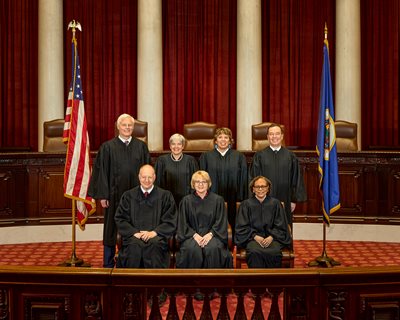On April 30, 2019, a jury convicted former police officer Mohamed Noor of Third-Degree Murder and Second-Degree Manslaughter for the death of Justine Ruszczyk Damond. The conviction sparked a legal battle over the meaning of the words “causes the death of another by perpetrating an act eminently dangerous to others and evincing a depraved mind, without regard for human life.” Does it mean the eminently dangerous act must be directed toward multiple people? Or is it sufficient that the eminently dangerous act was directed toward one person? On September 15, 2021, the Minnesota Supreme Court answered this question and as a result, overturned Mr. Noor’s Third-Degree Murder conviction.
Minnesota Court of Appeals
Minnesota Supreme Court
“The third-degree murder statute’s reference to perpetration of an act eminently dangerous to ‘others’ does not preclude its application when the deathcausing act endangered only one person because in construing statutes, the singular includes the plural and the plural includes the singular.”
“We therefore hold that a conviction for third-degree murder under Minnesota Statutes section 609.195(a) may be sustained even if the death-causing act was directed at a single person.”
The Supreme Court discussed their former decisions that contemplate what “deprave mind murder” means.
“In sum, the mental state necessary for depraved-mind murder, Minn. Stat. § 609.195(a), is a generalized indifference to human life and—based on our precedent—cannot exist when the defendant’s conduct is directed with particularity at the person who is killed.”

What does this mean?
The Supreme Court applied the clarified standard of a generalized indifference to human life to Noor’s case. Based upon the facts proven at trial, Noor was startled by the Ruszczyk’s appearance at the driver’s-side window and fired his gun with particularity at the person who startled him.
“Applying the particular-person exclusion to the facts of Noor’s case, as we must, we hold that the State presented insufficient evidence to prove that Noor acted with a ‘depraved mind, without regard for human life.”
The Supreme Court overturned Noor’s conviction for third-degree murder and upheld the conviction for second-degree manslaughter. The case will return to the District Court for Noor to be re-sentenced based solely on the second-degree manslaughter conviction.
Minnesota Court of Appeals
“The third-degree murder statute’s reference to perpetration of an act eminently dangerous to ‘others’ does not preclude its application when the deathcausing act endangered only one person because in construing statutes, the singular includes the plural and the plural includes the singular.”
“We therefore hold that a conviction for third-degree murder under Minnesota Statutes section 609.195(a) may be sustained even if the death-causing act was directed at a single person.”

Minnesota Supreme Court
The Supreme Court discussed their former decisions that contemplate what “deprave mind murder” means.
“In sum, the mental state necessary for depraved-mind murder, Minn. Stat. § 609.195(a), is a generalized indifference to human life and—based on our precedent—cannot exist when the defendant’s conduct is directed with particularity at the person who is killed.”
What does this mean?
The Supreme Court applied the clarified standard of a generalized indifference to human life to Noor’s case. Based upon the facts proven at trial, Noor was startled by the Ruszczyk’s appearance at the driver’s-side window and fired his gun with particularity at the person who startled him.
“Applying the particular-person exclusion to the facts of Noor’s case, as we must, we hold that the State presented insufficient evidence to prove that Noor acted with a ‘depraved mind, without regard for human life.”
The Supreme Court overturned Noor’s conviction for third-degree murder and upheld the conviction for second-degree manslaughter. The case will return to the District Court for Noor to be re-sentenced based solely on the second-degree manslaughter conviction.
Call Sieben & Cotter at 651-455-1555 to arrange your free and comprehensive consultation, or send a request for more information.
The information in this blog post is provided for general informational purposes only. No information contained in this post should be construed as legal advice from Sieben & Cotter, PLLC, nor is it intended to be a substitute for legal counsel on any subject matter. No reader of this post should act or refrain from acting on the basis of any information included in, or accessible through, this post without seeking the appropriate legal or other professional advice on the particular facts and circumstances at issue from a lawyer licensed in the recipient’s state, country or other appropriate licensing jurisdiction.
